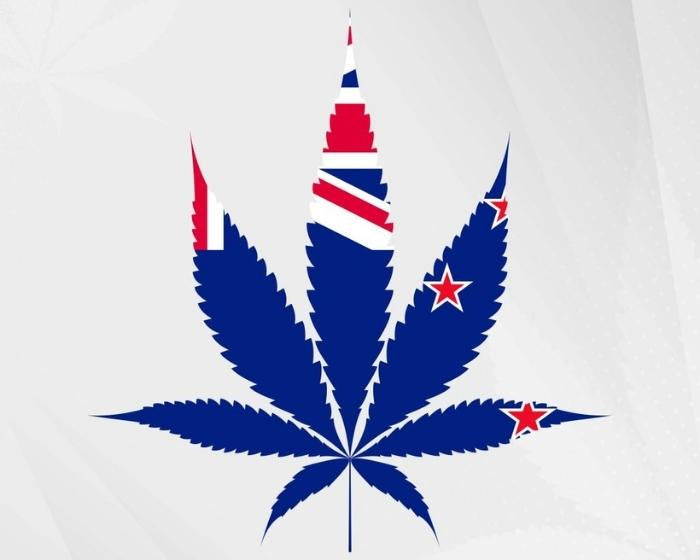After an arduous two-year process, the Easter Band of Cherokee Indians (EBCI) began distributing medicinal marijuana cards last week.

Medical cannabis is now officially available in North Carolina. Well, it's technically accessible to a select few who were issued medical marijuana cards this week. As first reported by WCNC-Charlotte, the Eastern Band of Cherokee Indians finally gave out its first round of patient cards last week.
For now, cards can only go to tribal members. However, the hope is to eventually be able to assign cards to any North Carolinian who qualifies for the program. The announcement of the first round of issuances came as welcome news to members of the Tribal Council, which voted to approve the program in 2021 that has yet to witness a single sale.
Despite the positive step of issuing the cards, it is still unclear exactly when authorized patients will be allowed to purchase their plant medicine at the tribe's massive new dispensary, still under construction on the 57,000-acre Qualla Boundary. With the latest medical marijuana bill stalling in the state legislature with no sign of potential passage soon, the EBCI location is technically the only place in North Carolina where cannabis can be legally cultivated and sold.
At the Cherokee Police Commission meeting last Thursday, members of the EBCI Tribal Council met with the executive director of the EBCI Cannabis Control Board (CCB), Neil Denman, to discuss the details of the first issued cards and plans for moving the overall process forward. During the discussion, Denman said that the CCB had received 1,005 card applications, with the Board approving 817 to become part of the program.
The most significant challenge still confronting the tribe is the issue of how to transport cannabis to the dispensary legally. A crucial aspect of the EBCI's production procedure involves moving its medical marijuana along a short span of a state-owned roadway. Early in the process, Swain County officials warned that the issue of transportation along the highway would be problematic since cannabis is still illegal in North Carolina.
Swain County Sheriff Curtis Cochran said that he has "had several conversations with the chief, tribal attorney, and others about the transportation of cannabis. I stated that until North Carolina changes the law, it is still illegal to possess or transport marijuana on the highway."
In an interview with Marijuana Moment, EBCI Principal Chief Richard G. Sneed blamed much of the problem on the tribe's non-native vendor for the program.
"The issue I have with all of this, really, is with the vendor that we're engaged with, their lack of foresight for how they were going to get the product from one piece of tribal land, across state land, and back onto to tribal land," he said.
"The issue I have with all of this, really, is with the vendor that we're engaged with, their lack of foresight for how they were going to get the product from one piece of tribal land, across state land, and back onto to tribal land."
- EBCI Principal Chief Richard G. Sneed
Hoping to smooth over and mitigate the issue, Denman told the commissions that the Board is working with Swain County to draft and install a transportation plan. However, he failed to provide any timeline for resolving the matter.
At one point during the proceedings, Mike Parker, chairman of the EBCI Tribal Council, added further frustrating fodder to the contentious problem by informing the council that the transportation challenge was creating a temporary financial crisis for the tribal cannabis company, Qualla Enterprises.
"We haven't been able to transport the product to the dispensary, is my understanding. We have no revenue because we haven't been able to transport the product," Parker said.
"We haven't been able to transport the product to the dispensary, is my understanding. We have no revenue because we haven't been able to transport the product."
- Mike Parker, chairman of the EBCI Tribal Council
As a result, the council is considering lending the company $19 million to help cover wages and other operating expenses.
Besides the transportation difficulty, other notable aspects of the program include daily and weekly purchase limits for cardholders, with violations leading to suspension or revocation of card privileges. However, noteworthy for their lack of mention during the proceedings were other obstacles facing the program, including banking and lack of laboratory testing.
Then there is the issue of when the tribe will begin adult-use marijuana sales. This past September, members of the EBCI voted to approve the legalization of recreational cannabis sales and possession for adults 21 and older, including non-members. The measure passed by a resounding 70% to 30% margin. And while the voter initiative did not technically legalize marijuana automatically, the tribal leaders have stated they will honor the voters' decision when they take up the matter.
The EBCI's approach to the tricky cannabis issue is a compelling and thought-provoking narrative that could benefit other Native American nations. By leveraging its status as a sovereign body to enact legalization reform seemingly light years ahead of the painfully conservative state surrounding them, the EBCI is establishing a competitive advantage over all future businesses that will eventually enter the market once it is legal state or nationwide.
Two other tribes in Minnesota have already followed suit and legalized adult-use marijuana sales on their tribal lands. In grabbing that first position, the Cherokee Nation may be capturing most of the market share before the market even exists. It's an aggressive and risky gamble. However, the tribe's casino makes money off that strategy daily. Based on other results nationwide, it's a pretty safe bet.






































